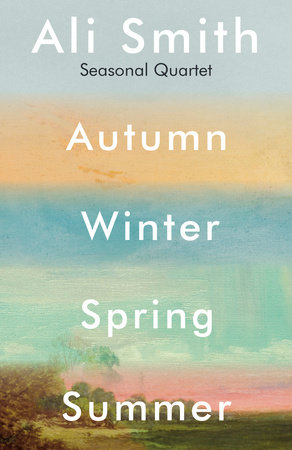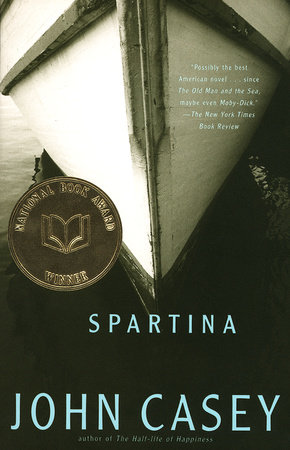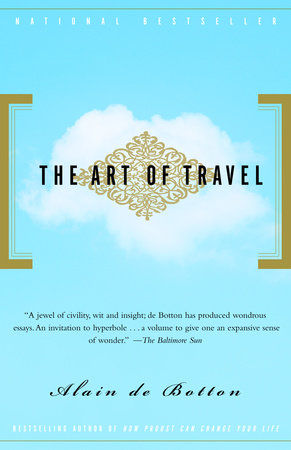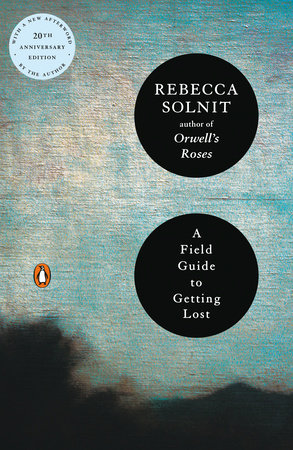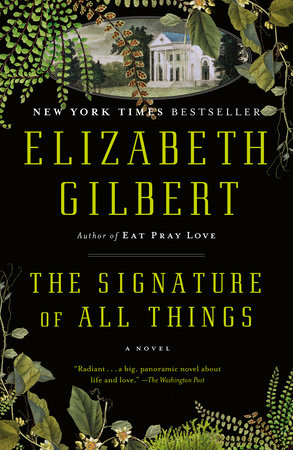“Ali Smith’s Summer concludes her seasonal quartet on a high note. . . . Rich with references, characters quick to share stories about artists and their work, and the misfits and heroes of history, Summer is more than a perennial season. It is the bravura performance of a writer, poised at the edge of the day’s vast darkness, gathering all the warmth and light of our inner summer. ”
—Ellen Akins, The Washington Post
“In Smith’s hands, stories slipstream in the wake of other stories; dreams are tucked up under the armpits of serious shifts in time and space. There are no directional arrows Scotch-taped to the floor. . . . This novel made me laugh, quite a lot, as the generations wage war. . . .
The water, here and there, turns brackish. But as with a strong river, their motion is fundamentally self-purifying. Summer is a prose poem in praise of memory, forgiveness, getting the joke and seizing the moment.”
—Dwight Garner, The New York Times
“Sublime. . . . Ali Smith has completed what must be considered both one of modern fiction’s most elusive and most important undertakings . . . [Smith is] a great writer, quite possibly bound for a Nobel Prize; twenty years ago it seemed certain that Salman Rushdie, Martin Amis, and Ian McEwan had lapped the field, but assess again today and it’s instead Hilary Mantel and Smith who seem the most consequential British novelists of their generation . . . As the characters of Summer entwine, like branches over a road, I had the feeling that no novelist has come closer to describing the particular sad informed madness of our times.”
—Charles Finch, The Boston Globe
“Though each book [in the Seasonal Quartet] raises the bar of social and political isolation ever higher, the goal of the novels is to connect these isolates one by one, through ingenious means both known and unknown to them. In doing so, Smith manages to restore both a sense of community and something even rarer in the wired world: narrative . . . A revelation of endurance and a balm even in the worst of times.”
—Los Angeles Times
“A deeply resonant finale to a work that should come to be recognized as a classic . . . A novel that is wonderfully entertaining—for its humor, allusions, deft use of time and memory, sharply realized characters, and delightfully relevant digressions—and a reminder, brought home by the pandemic, that everything and everyone truly is connected and the sufferance of suffering hurts us all.”
—Kirkus Reviews (starred review)
“Ali Smith concludes her seasonal quartet with the triumphant Summer, the long-awaited final installment in a groundbreaking postmodern series . . . Now is the time to read straight through all four installments, which hang together in one grand, epic aria. Smith’s visionary series, ambitious in its scale and towering in its achievements, will be studied and imitated for decades to come.”
—Esquire
“I’m not sure I’ve ever looked forward to a book as eagerly as Ali Smith’s Summer . . . A vast and dizzyingly ambitious project . . . [R]arely blindsided by events, so attuned are they to the spirit of their times, the books have always sought to reach through the specific and towards the universal—they are, to quote Ezra Pound, the best kind of literature: ‘news that stays news’. . . Reading the four books together is a deeply affecting experience, in which we understand the huge ambition that underlies them, the profound and compassionate intelligence that sits at their heart. Ali Smith has completed something truly remarkable in her seasonal quartet, a work that has risen to the challenges of the era that summoned it, but also a series of novels that will endure, telling future generations what it was to live in these fraught and febrile times, and how, through art, we survived.”
—Alex Preston, The Observer
“[Smith] envisions the shape of life as something more wildly elemental than the neat idea that our days on earth run from point A to B . . . Stunning . . . There could be no more nourishing read for this summer of our discontent.”
—The Sunday Times (London)
“[A] clear-sighted finale to a dazzling quartet . . . How fitting that this novel should narrate for you how you feel about reading it at the very moment when you feel it, text pressing so closely against life it’s as if we are being challenged to spot the difference . . . [B]oth wildly innovative and reassuringly familiar at the same time . . . transcendent . . . Smith’s project has felt all along as if it wants to nudge us towards hope, towards the idea that if we want to reverse the irreversible flow of history, we have to look to what the novel can do.”
—Sara Collins, The Guardian
“[T]he first great coronavirus novel . . . grounded in current events, set to the backdrop of Australia’s bushfires, global warming, inklings of Covid hysteria and even George Floyd’s death. Summer neatly ties the events of Smith’s previous novels together and offers a hopeful outlook for the future.”
—Evening Standard
“An astonishing finale to a prescient series . . . Ali Smith brilliantly weaves strands of joy and celebration to end her Seasonal Quartet.”
—The Irish Times
“The final flourish of a mazy and beautiful quartet . . . Both playful and profound.”
—The Telegraph
“Revelatory . . . Chatty, allusive, punning, leaping between time frames and trains of thought, synthesizing a vast amount of material from the past as well as the present, the style of the quartet could easily be described as a product of the digital age, were it not for a sense that it’s the world that has caught up with Smith rather than the other way round . . . Vertiginous, century-spanning . . . This singular writer has found her moment.”
—Prospect Magazine
“Simple yet subtle.”
—The Tablet
“Best taken together, the quartet works like a piece of music with recurring motifs and interconnected ideas about art, science and politics.”
—Metro
“Smith’s postmodern poetry prose is a work of art.”
—SouthCoast Today
